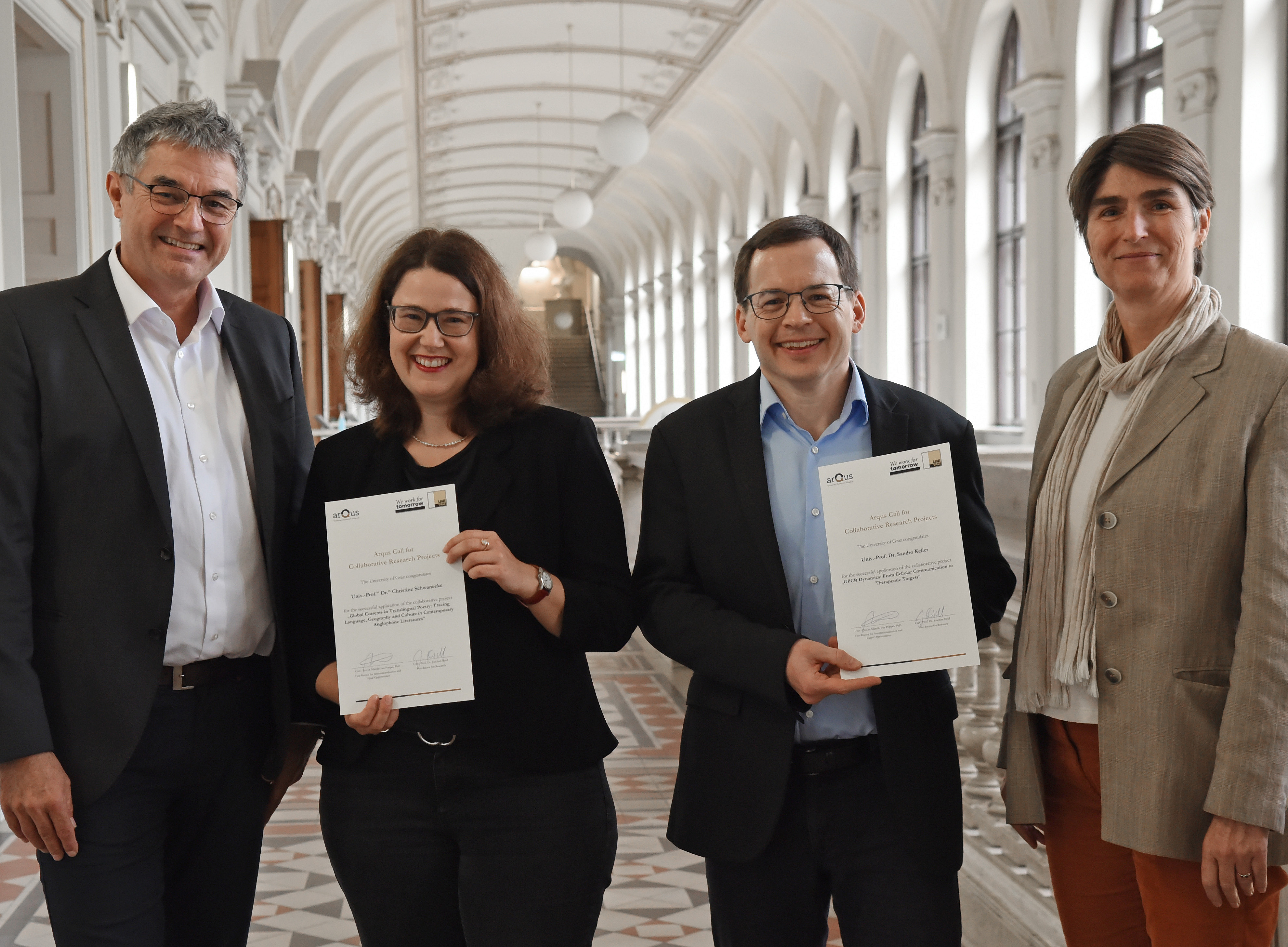The aim of the first Arqus Call for Collaborative Research Projects was to strengthen existing or facilitate new collaborations between Arqus partner universities and to promote young researchers, a core target group of Arqus.
The competition was fierce, but out of the 19 projects submitted, two came out on top, having been judged outstanding by independent external evaluators. We congratulate the winners and look forward to the first jointly supervised PhD students in Arqus. This marks a milestone for the whole alliance.
Funded projects
GPCR Dynamics: From Cellular Communication to Therapeutic Targets
The research project ‘GPCR Dynamics: From Cellular Communication to Therapeutic Targets’ by Sandro Keller (Institute of Molecular Biosciences) investigates how certain proteins in the cell membrane - so-called GPCRs - transmit signals that are important for heart function, respiration and brain activity. The collaboration with Irene Coin from the Institute of Biochemistry at Leipzig University is of crucial importance here, as the project combines the complementary methods of both teams in order to better understand the behaviour of a specific receptor (M2R) both in the cell and in the test tube and thus create the basis for new therapies.
Global Currents in Translingual Poetry: Tracing Language, Geography and Culture in Contemporary Anglophone Literatures
Christine Schwanecke's (Institute of English Studies) research project ‘Global Currents in Translingual Poetry: Tracing Language, Geography and Culture in Contemporary Anglophone Literatures’ is dedicated to a rarely researched art form: translingual poetry. It is written in the authors' second language and is characterised by the fact that it transcends linguistic, geographical and cultural boundaries. It thus makes an outstanding contribution to intercultural understanding, which is urgently needed in times of rising nationalism. Both the project and the participating universities benefit greatly from the international collaboration: on the one hand, the cooperation with Rūta Šlapkauskaitė from the Institute of English Philology at Vilnius University contributes to the conceptual profiling of the research project, while on the other hand, international doctoral training at the University of Graz is strengthened and further expanded.’
